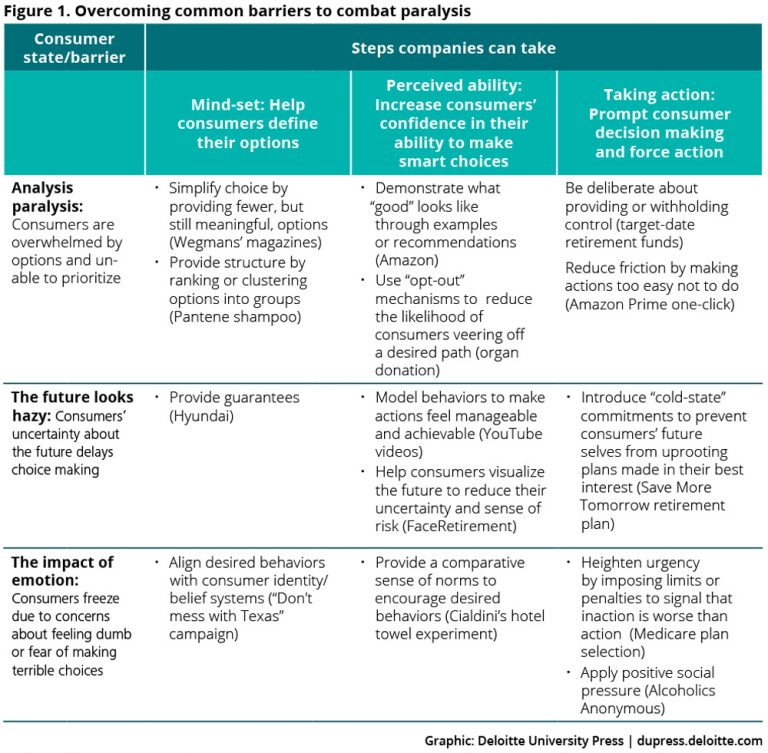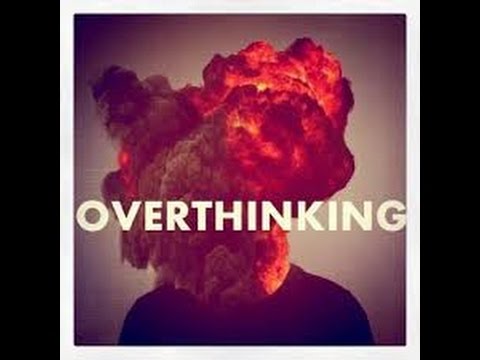How to deal with decision-paralysis
As we’ve shown in a previous article, decision-paralysis is a real problem, both for personal and professional decisions, no matter their dimension. Therefore, we’ve considered it’s important to show what measures can be taken in order to diminish its effects and ease the decision-making.
Differentiate between big and small decisions
“If the decision isn’t going to make a big difference a year from now and there are no serious consequences that will come out of it, then it is a small decision. Spend as little time as you need to nail this. Then, let go. If the decision will create major impact after a year and there are serious implications from making the wrong choice (such as marrying someone you don’t love), then it’s a big decision. Set aside time to think over it. Read my guide How to Make Life’s Hardest Decisions,” wrote Celestine Chua of personalexcellence.co.
Spend time in knowing yourself as best as possible
Knowing who you truly are,your real passions and goals will help you take smarter and faster decisions. “Smooth decisions proceed from clear values whether you’re in the supermarket or the trenches of your small business. As Wise Bread’s Jacob McMillen has reminded readers in a recent blog post, <<the best decision makers don’t wait until the moment of decision to choose. Their choices come from a set of a predetermined core values that make the momentary decisions easy and consistent>>,” writes Inc.com.
Identify Your Objective(s) and decide according to it/ them
Set a deadline and stick to it
Having a timeline in mind can be a really good tool to help one stay on the right track and stop wasting valuable time.
Curb your curiosity
“One of the culprits contributing to analysis paralysis are details; specifically, the desire to excavate deeper and deeper every new detail that arrives on scene. To satiate the intellectual curiosity that yearns for more information (and therefore stalls progress), set yourself parameters for what you need to know (now) and what you’d like to know (in the future). If the information you have now answers the call, it’s time to move forward,” writes Forbes.

Assign valence to each alternative
“Consider the advantages and disadvantages of each alternatives. For example, in the case of deciding which restaurant to go, we could have considered the quality of the food, the cost, , how nice the restaurant was in terms of décor, and the distance,”considers www.psychologymatters.asia.
Stop looking for perfect and try ok
Searching for the perfect product or the totally right decision may prove to be exhausting and challenging, creating more problems than resolving it. Something finding the next best thing is good enough when you’ve spent too much time stuck into a problem /situation / decision.
Look into the future
In a TED talk, Harvard psychologist Dan Gilbert talks about a phenomenon he calls the “end of history illusion,” where we imagine that the person we are today is the person we’ll be until we die. But that’s not the case.
“The bottom line is, time is a powerful force. It transforms our preferences. It reshapes our values. It alters our personalities. We seem to appreciate this fact, but only in retrospect. Only when we look backwards do we realize how much change happens in a decade. It’s as if, for most of us, the present is a magic time. It’s a watershed on the timeline. It’s the moment at which we finally become ourselves. Human beings are works in progress that mistakenly think they’re finished. The person you are right now is as transient, as fleeting and as temporary as all the people you’ve ever been. The one constant in our life is change,”explains Gilbert.
Therefore, try to remember that you’re choosing not for the person you are now, but the person you will become in the future. Look at this moment from the future and forget what feels comfortable.
Simplify
If the decision you are trying to make is so complex that you get stuck in analysis paralysis then if possible break your decision down into two or more simpler decision making tasks.
Empower decision-makers
“If you’re a business owner, you can make any decision you want, but not every major decision choice should fall on your plate. If you task someone to do research or manage account communications, you have to empower him or her to make decisions without stopping to get your go-ahead. Otherwise, the process will take twice as long. Throwing someone at a project who doesn’t have the ability to make a decision just wastes everyone’s time,” wrote entrepreneur.com.
How to find inspiration
When being on your own passion is what drives you the most and keeps you going even when dealing with harder choices or long hours. Knowing that you are working towards a goal and making a dream come true is essential. But what does one do when is faced with a moment of lack of inspiration, where does one find it, especially when faced with a deadline? Even the more creative and inspiration people have found out that is not that easy to answer the question and even they have been faced with this problem.
Here are some of the ideas we have for you and that we know work.
Change the place that you are working from
Being “stuck” at a desk or the same environment may prove out to be a good reason for loosing inspiration or seeing things from the same angel. Going out, even for only an hour, taking out the laptop and working from the park or a nearby coffee shop with a great view may change your opinion about how you see things and help you discover a fresh view. The outdoors can do magic for new ideas.

Do sports
Breaking the work pattern with an hour of swimming or running can clear up your mind of problems and stress. The endorphins being released can help you revitalize your mind and body and also focus better in the future.
Leave your phone behind
By totally disconnecting from your daily work, you get to be again in touch with yourself and your passions and remind you what truly brought you into this path. Meeting new people, talking with friends about other subjects will open yourself to new perspectives and ideas, which will ultimately translate into inspiration.
Listen to and / or play music
Music is an eternal source of imagination and inspiration and helps you reach into your emotion and feelings. But at the same time it can help you clear up your mind and put ideas in order.
Find a quiet place
Peace can also help if you have a very stressful period of time, with many projects. Time to listen to the ideas in your “head” may be always a good thing.

source: glassdoor.co.uk
Spend time online
Reading and looking through different news and pieces of information helps your brain remain active and ready to spark an idea that can be unique and original. Knowledge is also key to inspiration, as it creates a fertile soil for innovative ideas to emerge.
Brainstorm
Surrounded yourself by people who think differently than you and that live different lifestyles and challenge them to a brainstorming. This process will definitely offer you new perspectives and ideas that you would have never come up with on your own.

Broaden Your Horizons
Traveling is a great way to see how the rest of the world lives. You can get inspiration from seeing new ways of doing things or discovering needs you didn’t know existed.
Study History
History is full of great ideas. What’s more, it often contains the processes and the influences behind those great ideas. Tracing the creativity of great minds in the past can help you find new solutions in the present.
Simplify:
Sometimes a lack of inspiration can come from working on too many projects. Just try and focus on solving one problem at a time.
Keep Pushing:
Anyone can have one good idea. Unfortunately, you need a lot of good ideas to make a business work. The best entrepreneurs relentlessly follow up on their first idea and keep picking away at new problems for as long as it takes.
